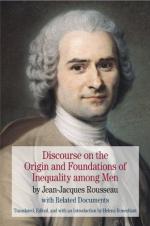|
This section contains 21,205 words (approx. 71 pages at 300 words per page) |

|
SOURCE: "The Achievement of Democratic Freedom," in Freedom in Rousseau's Political Philosophy, Northern Illinois University Press, 1993, pp. 70-116.
In the following excerpt, Cullen analyzes Rousseau's concept of "negative " (in the state of Nature) liberty and its relationship to democracy.
Are free relations possible? Can the avoidance of personal dependence characteristic of solitude somehow be imported into community? Rousseau's political thought is devoted to finding a form of association that avoids the inherent tendency of social relations toward domination and submission; its project is negative in that political relations are regarded as defensive relations designed to protect citizens from mutual domination.
Rousseau indicates that freedom might be susceptible to a political form, that there are circumstances in which freedom, nature, citizenship, and virtue might be compatible.
There are two sorts of dependence: dependence on things, which is from nature; dependence on men, which is from society. Dependence on things...
|
This section contains 21,205 words (approx. 71 pages at 300 words per page) |

|


